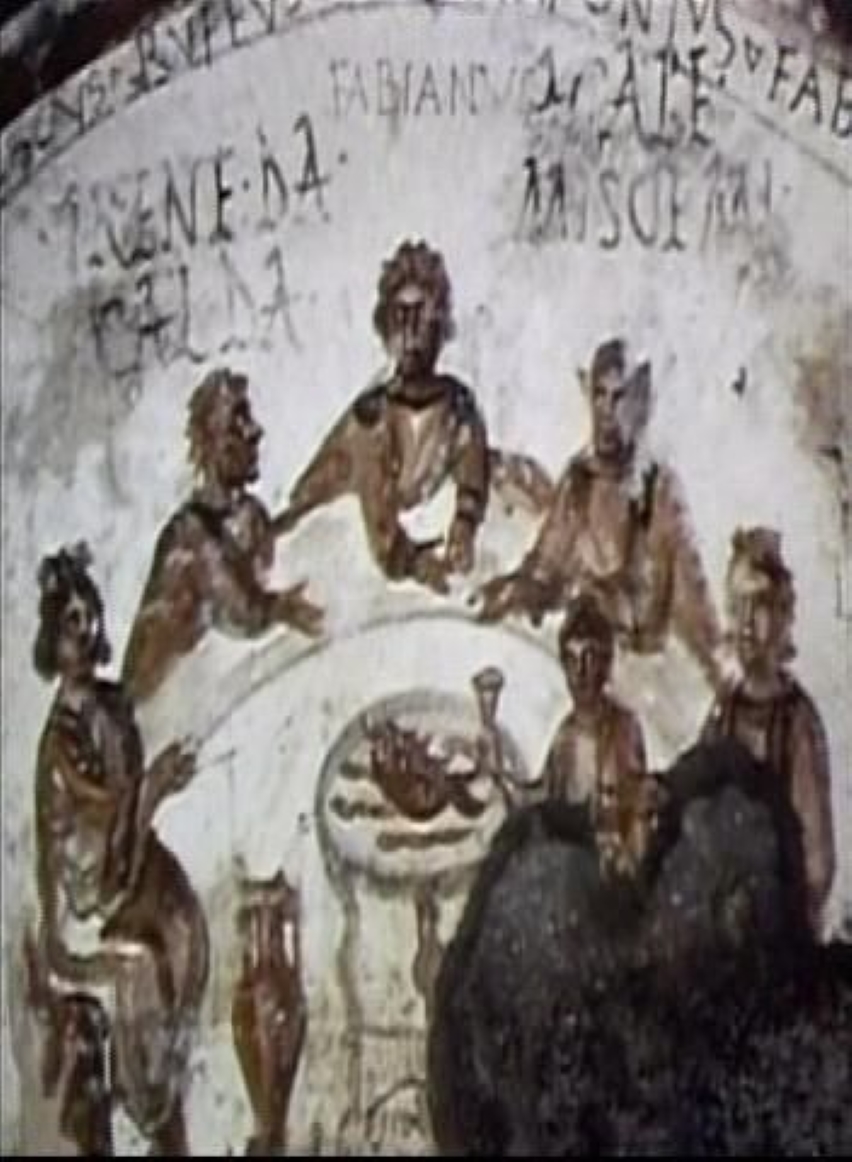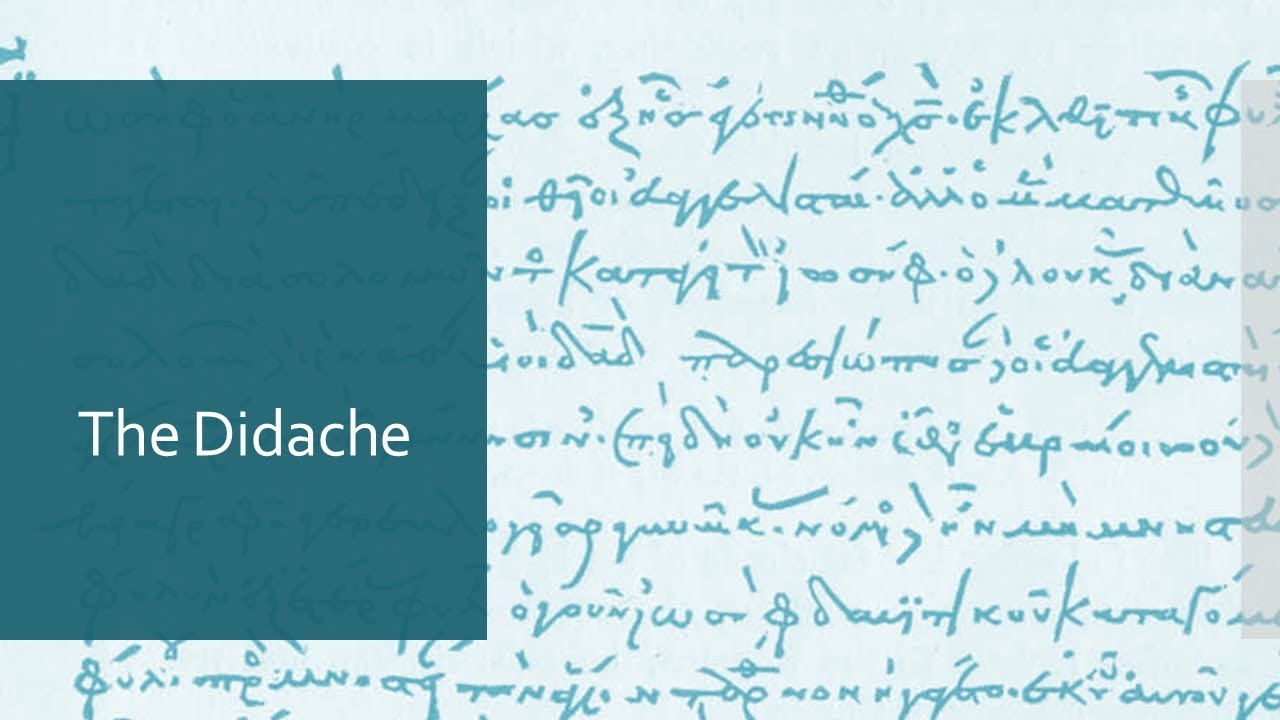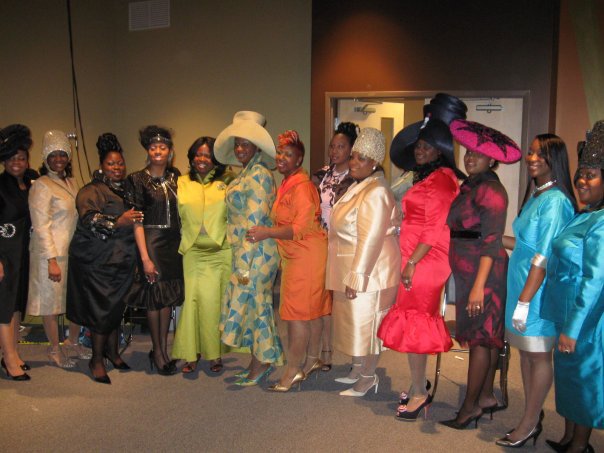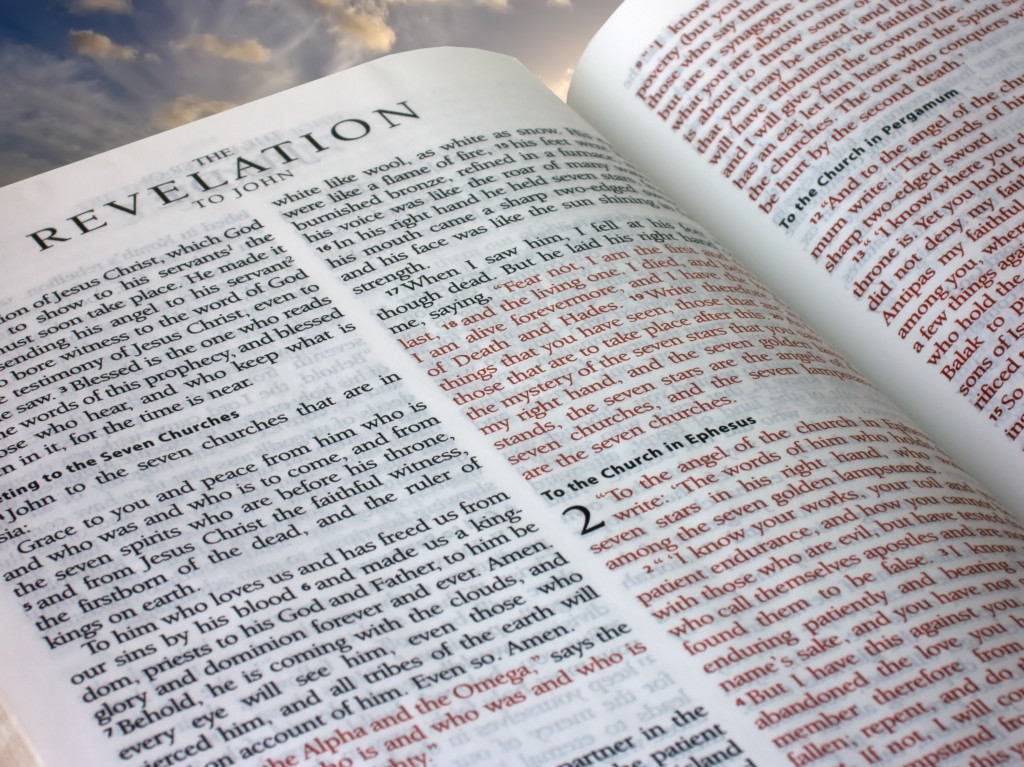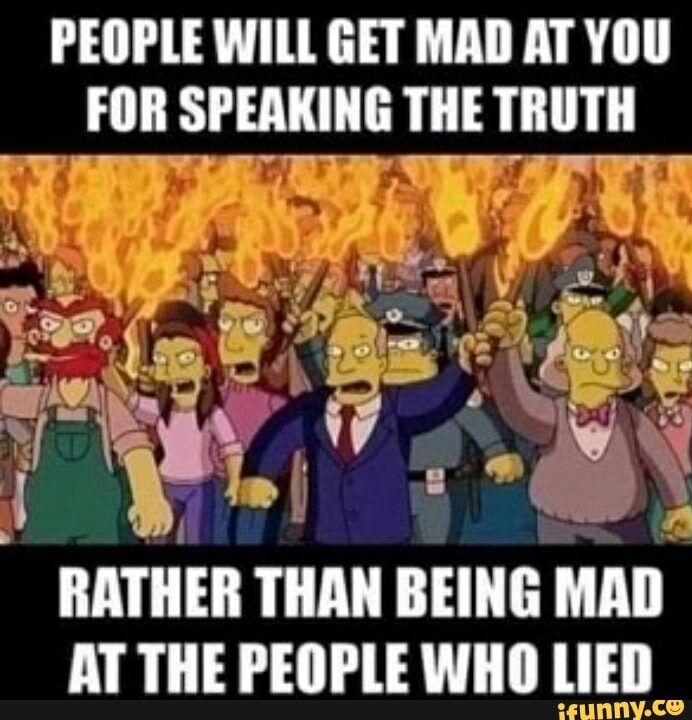NICOLAS TO NICOLAITANS
The Link Between Nicolas the Proselyte and the Nicolaitans: A Historical and Theological Analysis
The Book of Acts introduces Nicolas, a proselyte from Antioch, as one of the seven deacons appointed to serve the early Christian community in Jerusalem. This selection, recorded in Acts 6:5, occurred in response to a dispute concerning the daily distribution of food to Hellenistic Jewish widows, highlighting the early church’s efforts to ensure equitable care for its members. Nicolas holds a unique position among the seven, being the only Gentile convert, or proselyte, mentioned. Later in the New Testament, the Book of Revelation (Revelation 2:6, 15) condemns a group known as the Nicolaitans for their practices and teachings, which were so abhorrent that Jesus himself declared his hatred for them. This report aims to investigate the potential historical and theological link between this Nicolas of Acts and the Nicolaitian heresy mentioned in Revelation, drawing upon biblical, extra-biblical, historical, and academic sources.
Nicolas the Proselyte in Acts
In Acts 6:5, amidst the growing number of disciples, the apostles recognized the need to delegate administrative tasks to ensure the effective ministry of the word. The scripture records, “And the saying pleased the whole multitude: and they chose Stephen, a man full of faith and of the Holy Ghost, and Philip, and Prochorus, and Nicanor, and Timon, and Parmenas, and Nicolas a proselyte of Antioch”. This verse indicates that Nicolas was selected by the entire congregation following the apostles’ proposal to appoint seven men to oversee the daily distribution of food, a role for which he, along with the others, was deemed qualified by being “full of faith and of the Holy Spirit” and possessing wisdom. The initial depiction of Nicolas in the Book of Acts is unequivocally positive, presenting him as a respected member of the early Christian community entrusted with a significant responsibility. This positive portrayal creates a notable contrast with the later condemnation of the Nicolaitans, prompting inquiry into the nature of their connection.
The description of Nicolas as “a proselyte of Antioch” carries considerable significance. The term “proselyte” signifies that Nicolas was a Gentile who had converted to Judaism before embracing Christianity. His origin in Antioch, a major urban center renowned for its diverse population and confluence of cultures and religions, is also noteworthy. As a proselyte from such a vibrant and religiously pluralistic city, Nicolas would have likely been exposed to a wide array of philosophical and religious ideas prior to his conversion to Christianity. His inclusion as a leader within the early church, which was initially composed primarily of Jewish Christians, underscores the nascent community’s commitment to integrating Gentile believers. This background might later be considered when evaluating potential influences on his theological views or the possibility of his association with a heresy involving syncretism with pagan practices.
Beyond these details, the biblical account in Acts provides limited further information about Nicolas. The other six deacons listed alongside him – Stephen, Philip, Prochorus, Nicanor, Timon, and Parmenas – were likely Jewish by birth. Some scholars suggest that Nicolas’ appointment represents the first recorded instance of a proselyte being admitted to an official role within the Christian church. It is understood that Nicolas underwent two religious conversions, first from paganism to Judaism and subsequently from Judaism to Christianity. This history of religious transition might suggest a certain intellectual flexibility or a predisposition to embracing new belief systems, although such an interpretation remains speculative.
The Nicolaitans in the Book of Revelation
The Book of Revelation contains two specific references to the Nicolaitans, both within letters addressed to churches in Asia Minor. In Revelation 2:6, the letter to the church in Ephesus includes a commendation: “But this you have in your favor: You hate the practices of the Nicolaitans, which I also hate”. This verse reveals that the Nicolaitans engaged in specific “practices” that were so objectionable they elicited hatred from both the Ephesian church and Jesus himself. While the exact nature of these practices is not detailed in this particular verse, the strong language used underscores their fundamental opposition to early Christian values.
The second mention of the Nicolaitans appears in Revelation 2:15, within the letter to the church in Pergamum: “Likewise, you also have those who hold to the teaching of the Nicolaitans”. In contrast to the commendation given to the Ephesians for hating the Nicolaitans’ practices, the Pergamene church is rebuked for tolerating those who adhered to their “teaching”. This shift from “practices” in Ephesus to “teaching” in Pergamum might indicate a progression or different facets of the same underlying heresy, where initial actions had developed into a more formalized set of beliefs.
Crucially, Revelation 2:14 provides a vital clue to the nature of the Nicolaitan heresy by mentioning those who held to the “teaching of Balaam,” who “taught Balak to entice the Israelites to sin so that they ate food sacrificed to idols and committed sexual immorality”. The subsequent verse (2:15) uses the word “likewise” or “also” to connect this to those holding the teaching of the Nicolaitans. This parallelism strongly suggests a similarity between the teachings and practices of the Balaamites and the Nicolaitans, indicating that the Nicolaitan heresy likely involved leading believers into spiritual compromise through participation in pagan idolatry and possibly sexual immorality. The story of Balaam in the Old Testament describes his efforts to curse Israel and his subsequent advice to Balak on how to lead the Israelites into sin. The parallel suggests that the Nicolaitans were similarly enticing early Christians to engage in behaviors that compromised their faith.
Extra-Biblical Perspectives from Early Church Fathers
Several prominent figures in the early church addressed the Nicolaitans, offering insights into their origins and beliefs. Irenaeus, writing in the second century, explicitly stated that the Nicolaitans were the followers of the Nicolas mentioned in the Book of Acts as one of the seven deacons. He described them as leading lives of “unrestrained indulgence” and teaching that practices like adultery and eating food sacrificed to idols were permissible. This direct attribution by a significant early church leader provides a strong historical link, suggesting that the heresy was understood to have originated from this particular individual.
Hippolytus, another influential writer of the early church, echoed Irenaeus’ view, identifying Nicolas the deacon as the originator of the Nicolaitan heresy. He added that Nicolas had deviated from sound doctrine and promoted an indifference towards both life and the consumption of food. This aligns with the Nicolaitans’ association with eating food sacrificed to idols, a practice linked to pagan worship.
Clement of Alexandria, however, presented a contrasting perspective. He suggested that Nicolas himself was an ascetic and that the Nicolaitans had misinterpreted or perverted his teachings to justify their licentious behavior. Clement recounted an incident where Nicolas, accused of jealousy, offered his wife to other men to demonstrate his detachment from worldly passions. This account suggests that Nicolas might have been advocating for the subjugation of the flesh rather than its indulgence, implying that the Nicolaitans’ practices were a distortion of his original intent.
Eusebius of Caesarea also addressed the Nicolaitans, noting their brief existence as a sect and their claim that Nicolas the deacon was their founder. He referenced Clement’s interpretation of Nicolas’ actions as promoting self-control rather than libertinism. Other early writers, such as Pseudo-Tertullian and the authors of the Apostolic Constitutions, further contributed to the narrative, with the latter describing the Nicolaitans as “shameless in uncleanness”.
Church Father
Time Period (AD)
View on Link between Nicolas and Nicolaitans
Description of Nicolaitian Beliefs/Practices
Key Writings Mentioning Them
Irenaeus
c. 130-202
Nicolas was their founder
Unrestrained indulgence, adultery, eating idol sacrifices
Against Heresies
Hippolytus
c. 170-235
Nicolas was the author of the heresy
Departed from sound doctrine, indifference to life and food
Refutation of All Heresies
Clement of Alexandria
c. 150-215
Nicolaitans perverted Nicolas’ ascetic teaching
Shameless self-indulgence, misunderstood “abuse the flesh”
Stromata (Miscellanies)
Eusebius of Caesarea
c. 260-340
Nicolaitans claimed Nicolas as founder
(Implied licentious practices based on Revelation)
Church History
Pseudo-Tertullian
2nd-3rd Century
Nicolas was their founder
(Similar to Irenaeus and Hippolytus)
Against All Heresies
Apostolic Constitutions
c. 4th Century
(Implied connection to Nicolas)
Shameless uncleanness
Apostolic Constitutions
Historical Interpretations and Accounts
Historical interpretations of the Nicolaitans often link them to broader heretical movements of the early church, particularly Gnosticism and antinomianism. The belief in the irrelevance of the physical body, a tenet of some Gnostic systems, could have been used to justify indulgent behavior without fear of spiritual repercussions. Similarly, the antinomian view that Christian freedom exempts believers from moral law could have provided a theological basis for the Nicolaitans’ licentious practices.
The Nicolaitans’ association with the “teaching of Balaam” strongly suggests a willingness to compromise with paganism. In the cultural context of the Roman Empire, where pagan worship was pervasive, the Nicolaitans might have argued for the permissibility of participating in idolatrous feasts and other social activities linked to pagan rituals. This willingness to engage with pagan practices would have been seen as a grave compromise by the early church, which emphasized separation from idolatry.
Alternative interpretations of the Nicolaitans suggest that the name itself might be symbolic, possibly referring to an early inclination towards a hierarchical church structure where a ruling clergy held authority over the laity. The meaning of the Greek word “Nikolaos” as “conqueror of the people” lends itself to this interpretation. The connection to Balaam has also been interpreted in terms of the love of money and the corruption of ministry for personal gain. A more unconventional interpretation even links Nicolas to Nimrod and pagan winter solstice celebrations. The multiplicity of these interpretations underscores the limited direct information in Scripture and the reliance on later sources and linguistic analysis.
Academic and Theological Analysis
From a linguistic standpoint, the name “Nicolaitans” itself has been subject to scrutiny. Derived from the Greek “Nikolaos,” it can be understood as “victory of the people” or “conqueror of the people”. When compared with the potential meaning of “Balaam” from Hebrew, possibly “destroyer of the people” or “lord of the people,” a semantic parallel emerges. This similarity in the meaning of their names lends credence to the idea that the two groups might have espoused comparable beliefs or engaged in analogous practices, suggesting a deliberate connection drawn by the author of Revelation.
Historically and theologically, the early dating of the Book of Revelation places the Nicolaitans as a relatively early heretical group within the nascent Christian movement. The association with Nicolas, a figure active in the early church as recorded in Acts, is chronologically feasible. However, the absence of direct biblical evidence explicitly linking Nicolas of Acts to the Nicolaitans mentioned in Revelation leaves room for scholarly debate. Some academics propose that the Nicolaitans might have falsely attributed their teachings to a prominent figure like Nicolas to gain authority. The possibility of another individual named Nicolas existing during that period cannot be entirely dismissed.
Theologically, the condemnation of the Nicolaitans underscores the early church’s profound concern for upholding moral purity and doctrinal integrity. It serves as a cautionary tale against the perils of syncretism, where Christian beliefs and practices are compromised through assimilation with pagan culture. The strong condemnation issued by Jesus himself highlights the gravity of their errors in the eyes of early Christian theology. Regardless of the definitive historical link to Nicolas, the Nicolaitan heresy stands as a timeless reminder of the constant need for moral discernment and adherence to sound doctrine within the Christian faith.
Summary of Perspectives and Conclusion
The biblical account in Acts portrays Nicolas the proselyte as a man of faith and wisdom, chosen as one of the first deacons in the early church. In contrast, the Book of Revelation condemns the Nicolaitans for their detestable practices and teachings, which are linked to the enticements of Balaam, involving idolatry and sexual immorality. The dominant perspective among early church fathers, particularly Irenaeus and Hippolytus, directly connects Nicolas of Acts to the founding of the Nicolaitan sect, attributing their licentious behavior to his influence. Clement of Alexandria offers a dissenting view, suggesting that Nicolas was an ascetic figure whose teachings were later distorted by his followers.
Historical interpretations commonly link the Nicolaitans to Gnosticism, antinomianism, and a willingness to compromise with pagan practices. Alternative views suggest the name might be symbolic of clerical overreach or connected to the spirit of Balaam. Academic analysis reveals linguistic parallels between “Nicolaitans” and “Balaam,” supporting a similarity in their heresies, while acknowledging the lack of explicit biblical linkage to Nicolas of Acts.
In conclusion, while the early church tradition strongly associates Nicolas the proselyte of Acts with the Nicolaitian heresy condemned in Revelation, the evidence is not definitive. The absence of a direct link within the biblical text itself and the existence of alternative interpretations, including Clement of Alexandria’s defense of Nicolas, suggest a degree of uncertainty. It is possible that Nicolas, despite his initial positive portrayal, later fell into heresy, or that his teachings were misconstrued by his followers. Alternatively, the Nicolaitans might have falsely claimed his authority, or the name could be symbolic. Regardless of the specific historical connection, the condemnation of the Nicolaitans serves as a significant and enduring warning against the dangers of moral and doctrinal compromise within the Christian faith. The study of this topic highlights the early church’s vigilance against heresy and the ongoing need for discernment in matters of faith and practice.
Works cited
1. Topical Bible: Nicolas, https://biblehub.com/topical/n/nicolas.htm
2. Acts 6:5 – Bible Gateway, https://www.biblegateway.com/verse/en/Acts%206%3A5
3. Acts 6:5 This proposal pleased the whole group. They chose Stephen, a man full of faith and of the Holy Spirit, as well as Philip, Prochorus, Nicanor, Timon, Parmenas, and Nicolas from Antioch, a convert to Judaism. – Bible Hub, https://biblehub.com/acts/6-5.htm
4. What does Acts 6:5 mean? – BibleRef.com, https://www.bibleref.com/Acts/6/Acts-6-5.html
5. Acts 6:5 ESV – And what they said pleased the… – Biblia, https://biblia.com/bible/esv/acts/6/5
6. Acts 6:5-7 Share – Bible.com, https://www.bible.com/bible/compare/ACT.6.5-7
7. What the Bible says about Nicolas, https://www.bibletools.org/index.cfm/fuseaction/Topical.show/RTD/cgg/ID/1776/Nicolas.htm
8. Nicolaus; Nicolas – Meaning & Verses | Bible Encyclopedia, https://www.biblestudytools.com/encyclopedias/isbe/nicolaus-nicolas.html
9. Who Were the Nicolaitans, And What Was Their Doctrine and Deeds? – Renner Ministries, https://renner.org/article/who-were-the-nicolaitans-and-what-was-their-doctrine-and-deeds/
10. The Nicolaitans – Who Jesus Hates, https://nowoezone.com/Nicolaitans.htm
11. 10 Things You Should Know about the Nicolaitans – Sam Storms, https://www.samstorms.org/all-articles/post/article-10-things-you-should-know-about-the-nicolaitans
12. Who are the Nicolaitans in Revelation? Why Did God Hate Them? – Christianity.com, https://www.christianity.com/wiki/people/who-were-the-nicolaitans-in-revelation-why-did-god-hate-their-practices-so-much.html
13. Nicolaism – Wikipedia, https://en.wikipedia.org/wiki/Nicolaism
14. Who are the Nicolaitans mentioned in Revelation 2:6, 14-15? | GotQuestions.org, https://www.gotquestions.org/Nicolaitans.html
15. The Book of Revelation: The Nicolaitans Part One – Vintage City Church, https://vintagecitychurch.com/the-book-of-revelation-the-nicolaitans-part-one/
16. Revelation 2 NIV – To the Church in Ephesus – “To the – Bible Gateway, https://www.biblegateway.com/passage/?search=Revelation%202&version=NIV
17. Revelation 2:6 | Bible Exposition Commentary, https://versebyversecommentary.com/1998/10/11/revelation-26/
18. Revelation 2:6 But you have this to your credit: You hate the works of the Nicolaitans, which I also hate. – Bible Hub, https://biblehub.com/revelation/2-6.htm
19. Revelation 2:6 – New King James Version – Bible Gateway, https://www.biblegateway.com/passage/?search=Revelation%202%3A6&version=NKJV
20. Revelation 2:6-7 (Nicolaitanes And The Blessing of A Penitent Heart), https://hopeforahopelessgeneration.com/2022/05/20/revelation-26-7-nicolaitanes-and-the-blessing-of-a-penitent-heart/
21. What Is the Origin of the Nicolaitans (Revelation 2:6, 15)?, https://www.cgg.org/index.cfm/library/bqa/id/154/what-is-origin-of-nicolaitans-revelation-26-15.htm
22. Revelation 2:15 In the same way, some of you also hold to the teaching of the Nicolaitans. – Bible Hub, https://biblehub.com/revelation/2-15.htm
23. Revelation 2:15 – Likewise, you also have those who hold to the teac… | Bible Study Tools, https://www.biblestudytools.com/revelation/2-15.html
24. Revelation 2:15 | Bible Exposition Commentary, https://versebyversecommentary.com/1998/10/21/revelation-215/
25. Revelation 2:15 – New King James Version – Bible Gateway, https://www.biblegateway.com/passage/?search=Revelation%202%3A15&version=NKJV
26. Nicolaitans – Search results provided by BiblicalTraining, https://www.biblicaltraining.org/library/nicolaitans
27. Nicolaitans | Theopedia, https://www.theopedia.com/nicolaitans
28. Who are the Nicolaitans? Was Nicolas (one of the seven deacons) a believer of this doctrine? – Coptic Orthodox Diocese of the Southern United States – Q&A, http://qa.suscopts.org/index.php?qid=923&catid=502
29. The Nicolaitans? – Reasons for Hope* Jesus, https://reasonsforhopejesus.com/the-nicolaitans/
30. CHURCH FATHERS: Against Heresies, I.26 (St. Irenaeus) – New Advent, https://www.newadvent.org/fathers/0103126.htm
31. The concept of Nicolaitan in Christianity, https://www.wisdomlib.org/christianity/concept/nicolaitan
32. A Testimony of Jesus Christ : 4.13 – Nicolaitans – SpiritAndTruth.org, https://www.spiritandtruth.org/teaching/Book_of_Revelation/commentary/htm/topics/nicolaitans.html
33. NICOLAITANS – North Rwanda Field, https://www.nrf.rumadventist.org/nicolaitans/
34. Nicolaitans – Encyclopedia of The Bible – Bible Gateway, https://www.biblegateway.com/resources/encyclopedia-of-the-bible/Nicolaitans
35. Nicolaites | Catholic Answers Encyclopedia, https://www.catholic.com/encyclopedia/nicolaites
36. 4.13 – Nicolaitans – Precept Austin, https://www.preceptaustin.org/revelation-topics-nicolaitans
37. The Sect of the Nicolaitans and Nicolaus, the Deacon in Jerusalem – The University of Chicago Press: Journals, https://www.journals.uchicago.edu/doi/pdf/10.1086/480373
38. Who were the Nicolaitans (Rev 2:6 and 2:15) and what did they do? – Amazing Discoveries, https://amazingdiscoveries.org/read/articles/who-were-the-nicolaitans-rev-2-6-and-2-15-and-what-did-they-do
39. Who Were the Nicolaitans & Why Did Jesus Hate Their Deeds? – In The Word, https://intheword317207846.wordpress.com/2019/09/02/who-were-the-nicolaitans-why-did-jesus-hate-their-deeds/
40. Philip Schaff: NPNF2-01. Eusebius Pamphilius: Church History, Life of Constantine, Oration in Praise of Constantine – Christian Classics Ethereal Library, https://www.ccel.org/ccel/schaff/npnf201.iii.viii.xxix.html
41. Revelation: Solving the mystery of the Nicolaitans – National Catholic Register, https://www.ncregister.com/blog/revelation-solving-the-mystery-of-the-nicolaitans
42. Topical Bible: Nicolaitans, https://biblehub.com/topical/n/nicolaitans.htm
43. Nicolaitanism Today – Church of the Great God, https://www.cgg.org/index.cfm/library/article/id/46/nicolaitanism-today.htm
44. Bible Study: The Roman Catholic Church and The Doctrine of the Nicolaitans Which Jesus Christ Hates – Revealing the Christian Life Ministry, https://revealingthechristianlife.org/2022/01/02/bible-study-the-roman-catholic-church-and-the-doctrine-of-the-nicolaitans-which-jesus-christ-hates/
45. Who Are the Nicolaitans in Revelation, and Should We Look out for Them? – Bible Study, https://www.crosswalk.com/faith/bible-study/who-are-the-nicolaitans-in-revelation-and-should-we-look-out-for-them.html
46. Understanding the Nicolaitan Doctrine: Origins and Impact – Patrick Oben, https://patrickoben.com/doctrine-nicolaitans/
47. CATHOLIC ENCYCLOPEDIA: Nicolaites Or Nicolaitans – New Advent, https://www.newadvent.org/cathen/11067a.htm
48. Balaamite Theology – Harvest Bible Church, https://harvestbiblechurch.net/content.cfm?id=317&blog_id=1672
49. Spirit of Balaam Works Hand and Hand with Nicolaitans – H.O.T. House of Truth, https://hothouseoftruth.com/blog/2018/06/26/spirit-of-balaam-works-hand-and-hand-with-nicolaitans/
50. The Doctrine of Balaam and the Nicolaitans – Vridar, https://vridar.org/2022/05/23/the-doctrine-of-balaam-and-the-nicolaitans/
51. THE DOCTRINE OF BALAAM AND THE NICOLAITANS – Excerpts from the Ministry of Watchman Nee and Witness Lee, https://www.ministrysamples.org/excerpts/THE-DOCTRINE-OF-BALAAM-AND-THE-NICOLAITANS.HTML
52. The The Error of Balaam And The Doctrine Of The Nicolaitans – Emmaus Road Ministries, https://emmausroadministries.international/2016/07/20/the-the-error-of-balaam-and-the-doctrine-of-the-nicolaitans-2/
53. Doctrines of Balaam & Nicolaitans, http://www.bibleone.net/BF07.htm
54. Balaam, Jezebel, and the Nicolaitans – romans 1: 16 – WordPress.com, https://verse4psalm37.wordpress.com/2013/01/18/balaam-jezebel-and-the-nicolaitans/
55. Nicodemus and the Nicolaitans. – OpenSIUC, https://opensiuc.lib.siu.edu/cgi/viewcontent.cgi?article=3355&context=ocj
56. The Doctrine of the Nicolaitans – Churches at Home, https://www.churchesathome.org/wp-content/uploads/2020/02/Nicolaitans2-1-07-copy.pdf
57. The Sect of the Nicolaitans and Nicolaus, the Deacon in Jerusalem | The Journal of Religion: Vol 3, No 4, https://www.journals.uchicago.edu/doi/10.1086/480373
58. Unraveling the Mystery of the Nicolaitans – Toolify.ai, https://www.toolify.ai/ai-news/unraveling-the-mystery-of-the-nicolaitans-15191
59. The Nicilaitan Factor – GOLDEN SHEAVES, https://goldensheaves.org/pages/Nicolaitan-factor-181.html
60. Do we know anything about Nicolaism? : r/AcademicBiblical – Reddit, https://www.reddit.com/r/AcademicBiblical/comments/1h77ajz/do_we_know_anything_about_nicolaism/
61. The Book of Revelation: The Nicolaitans Part Two – Vintage City Church, https://vintagecitychurch.com/the-nicolaitans-part-two/
62. (Rev. 2:6) Who were the Nicolaitans? – Evidence Unseen, https://www.evidenceunseen.com/bible-difficulties-2/nt-difficulties/jude/rev-26-who-were-the-nicolaitans/
63. Acts 6:5 – Bible Verse Meaning and Commentary, https://www.biblestudytools.com/commentaries/gills-exposition-of-the-bible/acts-6-5.html
64. renner.org, https://renner.org/article/who-were-the-nicolaitans-and-what-was-their-doctrine-and-deeds/#:~:text=Acts%206%3A5%20tells%20us,turning%20from%20Judaism%20to%20Christianity.
65. Nicolas of Antioch – Resource Ministries, https://www.resourceministries.org/devotionals/grace-notes/nicolas-of-antioch_5/
66. What does Revelation 2:6 mean? – BibleRef.com, https://www.bibleref.com/Revelation/2/Revelation-2-6.html
67. What does Revelation 2:15 mean? – BibleRef.com, https://www.bibleref.com/Revelation/2/Revelation-2-15.html
68. Eusebius, EH.3.28-30: Against Heresies: Cerinthus & the Nicolaitans – Jeff Riddle, http://www.jeffriddle.net/2019/08/eusebius-eh328-30-against-heresies.html


